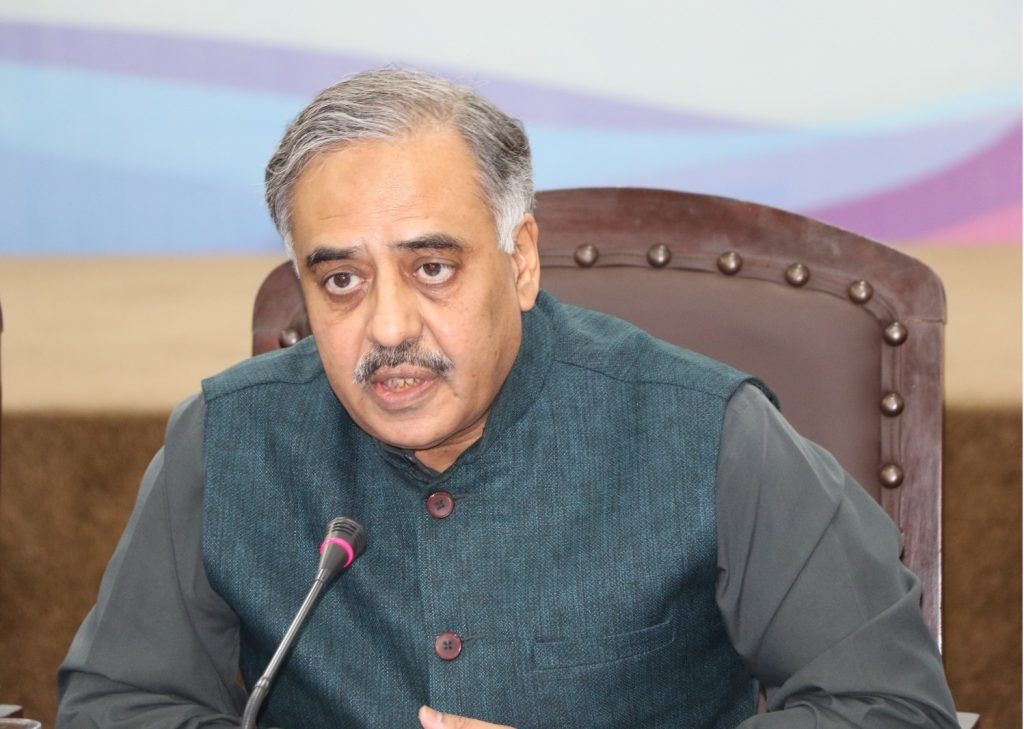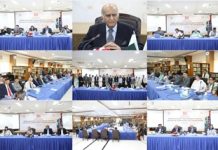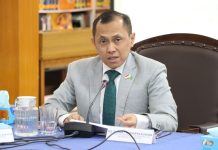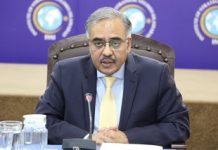Remarks by DG ISSI Ambassador Sohail Mahmood at the Book Launch “China-Pakistan Economic Corridor Beyond 2030: A Green Alliance for Sustainable Development”, 23 August 2024

Senator Mushahid Hussain Sayed, Chief Guest,
Ambassador Khalid Mahmood, Chairman BoG ISSI,
Minister Counsellor Xu Hangtian, Guest of Honour
Dr. Felix Kolbitz, Country Director, FES Pakistan,
Esteemed speakers,
Distinguished participants,
AoA and Good Morning!
It is a pleasure to welcome everyone to ISSI for the launch of the book: “China-Pakistan Economic Corridor Beyond 2030: A Green Alliance for Sustainable Development.” Edited by Dr Rabia Akhtar, it has been published by Friedrich-Ebert-Stiftung (FES), Pakistan. Its primary focus, as evident from the title, is on the future of CPEC and its potential to lead green and sustainable development.
We are delighted to collaborate with FES in organising this book ceremony. On behalf of ISSI, I extend our thanks to Country Director Dr. Felix Kolbitz, Program Officer Hamayoun Khan, and the FES team for their valuable support. This is another important milestone in our long-standing collaborative partnership.
Equally, we are grateful for the participation of several esteemed contributors to the book and the reviewers. First and foremost, Dr. Rabia Akhtar, an erudite scholar of international repute. Her intellectual curiosity, rigour and energy on issues from non-proliferation to global geo-politics to Artificial Intelligence to gaming are remarkable. Her contribution to Pakistan-China relations is of immense significance.
I also warmly welcome Ambassador Naghmana Hashmi, Dr. Hassan Daud Butt, and Dr. Salma Malik, who have all made their mark as eminent practitioners and academics. Their knowledge and insights would contribute to deepening our understanding of the subject today.
The participation of Minister-Counsellor Xu Hangtian as Guest of Honour is highly appreciated. The Chinese Embassy has been a steadfast partner in our endeavours, and we are thankful for that.
Last, but not the least, it is an honour to welcome, once again, Senator Mushahid Hussain Sayed as our Chief Guest. Senator Mushahid Hussain symbolizes the deep and enduring friendship between Pakistan and China. His unwavering efforts to further cement this iron-clad relationship and promote China-Pakistan Economic Corridor (CPEC) in all dimensions are invaluable. I personally regard him as the Dean of all Sinologists in Pakistan, who continues to chart new horizons in enriching the Pakistan-China relationship.
Distinguished participants,
Pakistan and China are bound by an all-weather strategic cooperative partnership that has been consistently nurtured by each succeeding generation in both countries over the past seventy-five years. The relationship is characterized by strategic mutual trust and abiding mutual support on each other’s issues of core interest.
The China-Pakistan Economic Corridor (CPEC), a high demonstration project of President Xi Jinping’s visionary Belt and Road Initiative (BRI), is a living example of this vibrant and futuristic partnership. CPEC connects China’s western provinces through Pakistan to the Arabian Sea. The project is transformative for Pakistan, envisioned to address critical issues such as energy shortages and infrastructural deficit and enhance regional connectivity. By revitalizing trade routes and promoting economic integration, CPEC is also envisaged to play a pivotal role in enhancing Pakistan’s position as a central gateway to Asia, the Middle East, and beyond.
CPEC has made impressive progress since its commencement in 2014. With a direct investment so far of $25.4 billion, CPEC has created 155,000 jobs, constructed 510 kms of highways, and generated 8,020 megawatts of electricity in Pakistan. These outcomes have contributed significantly, delivering visible and tangible benefits for the people of Pakistan. The project continues to be at the centre of Pakistan’s economic growth trajectory.
The accomplishments of CPEC are gratifying, and we look forward to the high-quality development that lies ahead. It is important to aim for higher standards and work towards creating an “upgraded version” of the corridor—one that is — as agreed between China and Pakistan at the highest level — growth-oriented, innovative, green, and open, with a stronger focus on enhancing livelihoods.
We also know that CPEC’s significance extends beyond economic growth. This book underscores the project’s potential to drive sustainable development. It highlights how CPEC could be transformed into a green development initiative, aligning with global sustainability goals and the United Nations’ Sustainable Development Goals (SDGs). By integrating green technologies and sustainable practices, CPEC is positioned not only to advance economic growth but also to lead in environmental stewardship. This approach reflects a strategic effort to balance economic benefits with environmental sustainability, ensuring that CPEC contributes positively to the region’s long-term development.
The best part is that the book concludes with a set of precise, actionable recommendations, which can serve as a coherent roadmap to advance these objectives.
As such, this book is a precious resource for policymakers and practitioners. It is also of high value to academics and researchers focused on CPEC and those interested in understanding the intersection of economic development and environmental sustainability. It sets a high standard for future discourse on how major infrastructure initiatives can contribute to global environmental goals. In this context, it is a valuable contribution to the existing literature and is strongly recommended. I urge everyone to get a copy.
With these words, I welcome all the distinguished participants again and wish a very fruitful session.
Thank you.














